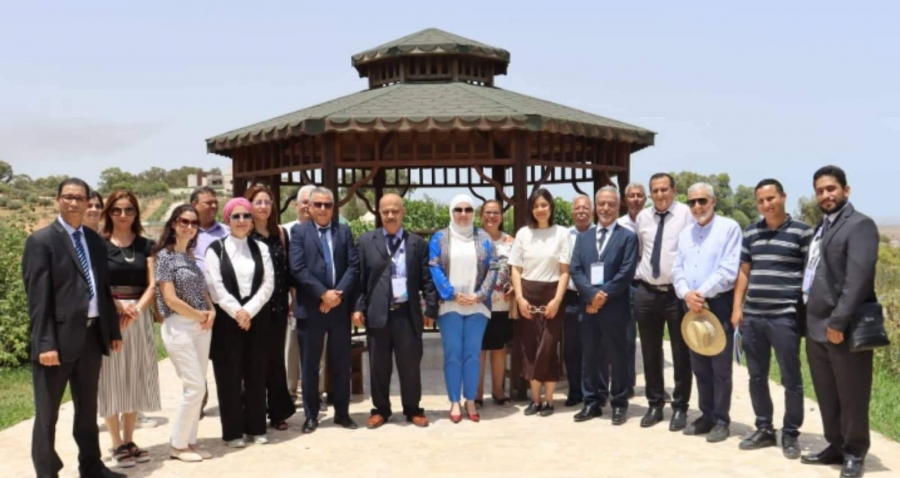- Local News
- Thu-2022-07-21 | 03:46 pm

Nayrouz News Agency :
The Royal Scientific Society (RSS) organized a conference titled "Policy Dialogue for Climate" in Tunisia, as part of the activities of the second phase of the MINARET regional project on the Water, Energy and Food Nexus.
According to an RSS statement on Thursday, the project aims at enabling municipal governance to achieve climate resilience using the Nexus approach, a concept to describe the complex and interrelated nature of the global resource systems, as well as placing local administration structures at the center of integrated and innovative climate action, developing sustainable energy and climate action plans, and providing targeted technical support in preparing economically viable integrated project proposals.
The conference brought together participants from the Tunisian Ministry of Interior, Energy, Water and Environment, the target municipalities, representatives of international organizations, climate experts and activists in Tunisia, and experts from the Royal Scientific Society / National Center for Energy Research.
It tackled the important role that local governance structures play in preparing their communities to meet the challenges of climate change using integrated and innovative solutions, in addition to highlighting cities as the driving force of the economy and placing municipalities at the heart of managing natural resources.
The MENA Region Initiative as a Model of NEXUS Approach and Renewable Energy Technologies, or MINARET, aims to address the unique sustainability challenges and opportunities of the MENA region by increasing local and regional sustainability capacities using the synergies between renewable energy technology and efficiency, water management, and food security.
The 4-year project kicked off in the first quarter of 2017 to be implemented in Jordan, Tunisia and Lebanon and it intends to build the municipality’s resilience to climate change through adopting renewable energy resources and energy efficiency, water management techniques and food security.









